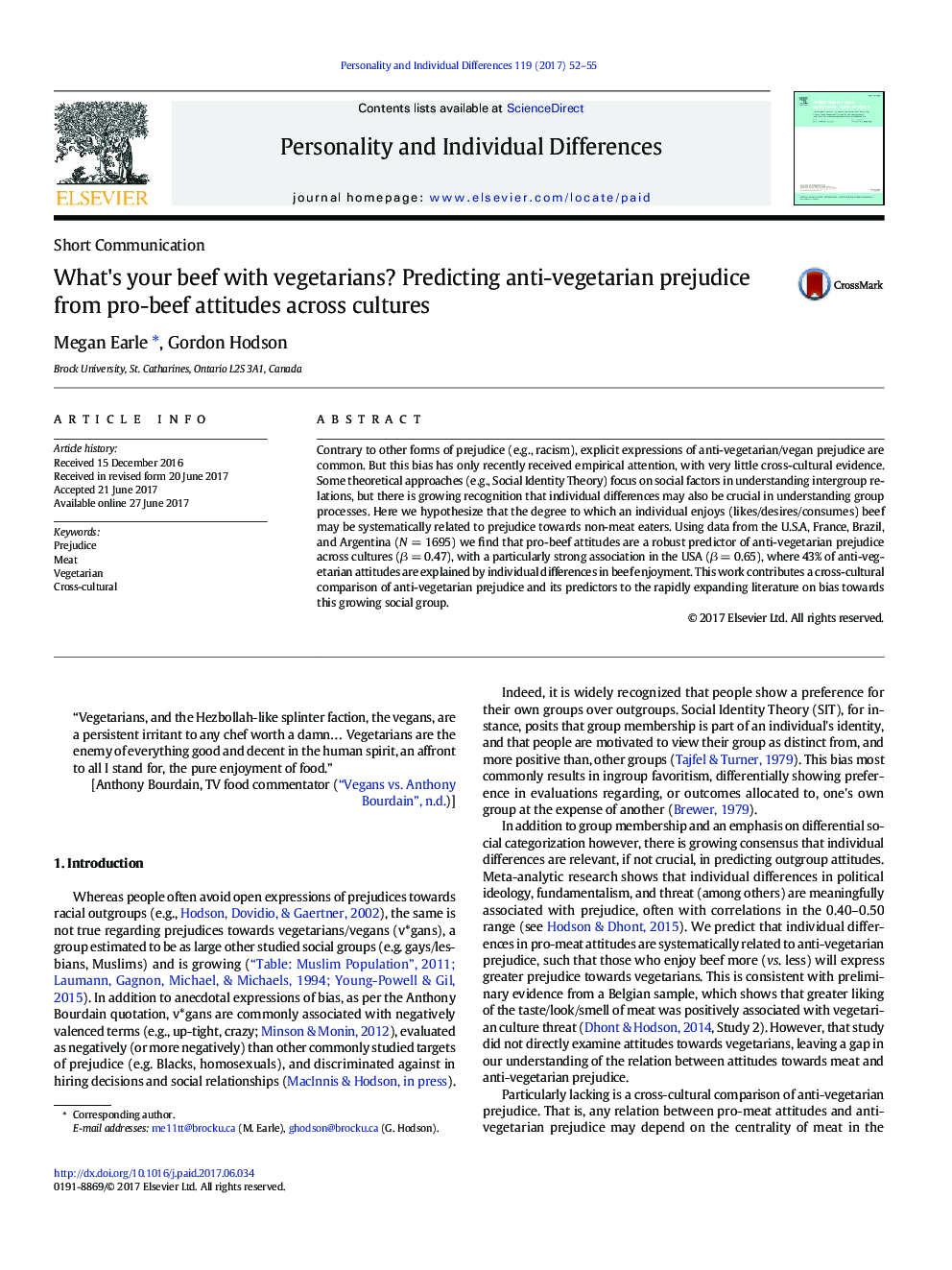| Article ID | Journal | Published Year | Pages | File Type |
|---|---|---|---|---|
| 5035691 | Personality and Individual Differences | 2017 | 4 Pages |
â¢Pro-beef attitudes are robust predictors of anti-vegetarian prejudice.â¢This association is found in the U.S.A., France, Brazil and Argentina.â¢For Americans, this relation is particularly strong.â¢Attitudes towards meat are crucial for anti-vegetarian prejudice cross-culturally.â¢Relation varies in magnitude across countries.
Contrary to other forms of prejudice (e.g., racism), explicit expressions of anti-vegetarian/vegan prejudice are common. But this bias has only recently received empirical attention, with very little cross-cultural evidence. Some theoretical approaches (e.g., Social Identity Theory) focus on social factors in understanding intergroup relations, but there is growing recognition that individual differences may also be crucial in understanding group processes. Here we hypothesize that the degree to which an individual enjoys (likes/desires/consumes) beef may be systematically related to prejudice towards non-meat eaters. Using data from the U.S.A, France, Brazil, and Argentina (N = 1695) we find that pro-beef attitudes are a robust predictor of anti-vegetarian prejudice across cultures (β = 0.47), with a particularly strong association in the USA (β = 0.65), where 43% of anti-vegetarian attitudes are explained by individual differences in beef enjoyment. This work contributes a cross-cultural comparison of anti-vegetarian prejudice and its predictors to the rapidly expanding literature on bias towards this growing social group.
Graphical abstractDownload high-res image (145KB)Download full-size image
